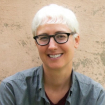You are here
For the Nepali community living in the Pacific Northwest, accessing accurate, trustworthy health information during the COVID-19 pandemic has been a constant challenge—one made even more difficult for those who speak limited English. Recognizing this problem, one group of inspired community members decided to dive in and help.
Since their founding in 1999, volunteers and staff at the Nepal Seattle Society have cherished their mission to reach the Washington and Oregon-based Nepali communities, by fostering a relationship to Nepalese culture and tradition and connecting with people on important issues like mental health. Responding to the COVID-19 pandemic, they focused on educating Nepalese communities and preventing the spread of COVID-19. The group holds workshops, trains health educators, increases access to vaccination and creates partnerships with state and local health departments and other community-based organizations (CBOs).
With funding from the CDC Foundation, this dedicated group of staff implemented the program Nepali Elder-guided Youth Partnership Vaccination Accessibility Liaison (NEYPVAL) in June 2021. This robust initiative connects younger members of the community with older members who are struggling to navigate the healthcare system and technology in general. These young people, 25 so far, help their elders find accurate information, locate services, sign up for appointments, download their vaccination cards and more.
“We plan to continue to engage our youth,” Program Manager Leema Pradhan said. “Most of our community members have multi-generational households, and involving our youth helps to involve and educate their family members, grandparents as well.”
Kite launch at Dashain Cup Soccer Tournament
Team members running Nepal Seattle Society booth at Dashain Cup Soccer Tournament
The Nepal Seattle Society has also engaged young people by hosting an outdoor community outreach event during the annual Dashain Cup Soccer Tournament, in which 12 local Nepali/Bhutanese community soccer teams competed. Dashain is one of the biggest festivals in Nepal, and during the celebration, revelers fly kites, considered a symbolic means of sending a message to the gods. According to tradition, the kites also bring good fortune, health and happiness to those that fly them. In the spirit of Dashain, the Nepal Seattle Society members raised their own vaccine-themed kites above the soccer fields—peppering the skies with encouraging messages about overcoming COVID-19.
To build on their successful efforts, this creative and enthusiastic group looked for a way to connect with a wider audience, including those who may not attend in-person events.
They lit on a new idea: a podcast.
“People were hesitant about the vaccines, and we wondered, ‘How could we get people to understand more about them and feel more comfortable?’” Leema said. “We’re realizing people respond best to first-hand perspectives. Even my immediate family members, who were skeptical of the vaccines in the beginning, were able to come to a decision after hearing first-hand perspectives. Basically, people need to trust someone, in order to come to a decision.”
Agreeing that a podcast would be a powerful vehicle for sharing these first-hand perspectives, the team decided to move forward. But then came the question of how to pull it off. After all, starting a podcast is no easy feat—there are technical, creative and organizational hurdles to overcome. But Communications Officer Rachit Shrestha wasn’t intimidated.
“It was a little complicated,” Rachit said. “So, it initially took a little while, but now it’s up and running. I’m happy I learned how to do it. I like learning how to figure out things like that.”
That can-do attitude has paid off. With support from the CDC Foundation, the team officially launched their podcast in November 2021. Recorded and streamed in Nepalese, the show is called “Let’s Talk #KURA,“ which, loosely translated, means “Let’s have a conversation.”
Communications Officer Rachit Shrestha
Dr. Adhikari visiting a family to perform a religious ceremony
The Nepal Seattle Society team
This unique podcast features prominent members of the Nepali community, with the aim of highlighting their achievements, strengthening and connecting their community and educating community members about COVID-19. The show is also an opportunity to combat misinformation and discuss the importance of getting vaccinated.
People need to trust someone, in order to come to a decision.
After their initial learning curve, the team now has their podcast production down to a science. They share English-subtitled highlights from their interviews across social media and release the full conversations on Spotify as audio podcasts.
A recent episode featured well-known Hindu priest and naturopath, Dr. Arjun Adhikari. In accordance with COVID-19 health guidance, Dr. Adhikari, visits people in their homes to perform religious ceremonies, educate about the virus and hand out masks.
A snippet with English subtitles can be found as a Zoom video interview, and the whole episode in Nepali, can be found on Spotify.
As word spreads, the Nepal Seattle Society’s audience is growing. Over 1000 people listened to the most recent podcast featuring Dr. Adhikari, and their reach continues to expand as the team finds new and innovative ways to reach their community.
Thanks to the tireless efforts of this impressive group of volunteers, the Nepali community in the Pacific Northwest and beyond will remain engaged and educated about COVID-19 and flu: one workshop, one kite and one podcast at a time.
Funding for this effort is made possible through a subaward from the CDC Foundation and is part of the Centers for Disease Control and Prevention (CDC) of the U.S. Department of Health and Human Services (HHS) financial assistance award totaling $25,660,048 with 100 percent funding from CDC/HHS. The contents are those of the author(s) and do not necessarily represent the official views of, nor an endorsement by, CDC/HHS or the U.S. Government.
